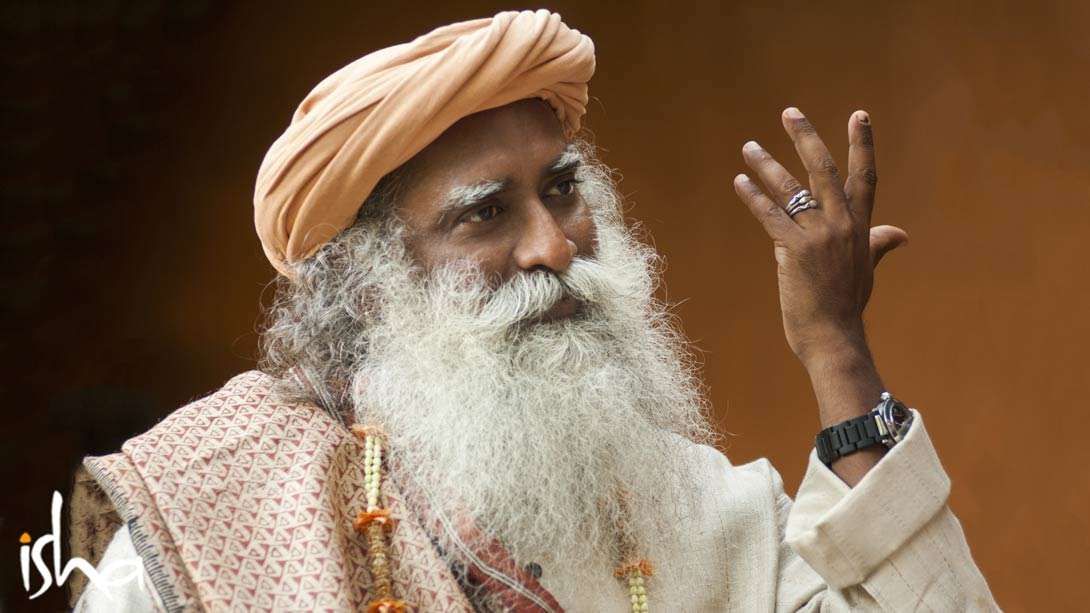Being Secular: A Culture of Quest, not Commandment
Sadhguru looks at what it means to be secular and how the term seems to be misunderstood today. He explains that India’s culture has always been naturally secular.

Sadhguru: The word “secular” indicates “the world” as opposed to any committed group – whether it is a group committed to religion, race, caste, creed or ideology. A secular way of life means a comprehensive and inclusive worldview in which differently committed groups will be treated with absolute equality in the eyes of a state constitution. While there may be sacrosanct personal allegiances to faith, caste or creed, all individuals in such an order will find equal opportunity to represent and rule the nation.
Therefore, “secular” does not mean being divorced from a faith, ideology or belief system, but rather the collective understanding that as you shall exist, so shall others. It is not a denial of faith, but the decision to allow everyone the freedom to pursue wellbeing and emancipation through whatever means they choose. It means allowing individuals of every persuasion to exist in absolute equality in the same nation state.
It is unfortunate therefore, that in our country, the word “secular” is claimed as the exclusive brand of a few political parties, groups or individuals. Excluding those you cannot agree with or cannot bring yourself to like is the very antithesis of being secular.
At the same time, we have to be careful not to uncritically adopt a model that originally came to us from another context. The idea that what is religious will not stand to reason is essentially a European idea, based on a perceived divide between faith and rationality. In such a view, what is reasonable becomes “secular”, and what is believed becomes “religious”.
In the subcontinent however, the view of religion has always been different. This is a spiritual culture of seekers, not believers, of quest, not commandment. Here, what is considered to be religious or sacred can be debated. It does not have to be obeyed.
Subscribe
Today’s misunderstanding of the word “secular” is essentially destructive. The notion that the spiritual history of thousands of years needs to be erased and replaced by a modern constitution is not just naïve, but unnecessary. When situations are extreme, when human survival is in question, you can make people believe that a set of administrative guidelines is sufficient for their lives. But when there is order, when economic and social situations are relatively stable, administrative guidelines will never be sufficient. A constitution can provide order, but it will never provide sustenance for human consciousness.
Human beings have a fundamental longing to know, to expand, to become boundless. It is only the spirit of questioning, born of this ancient human quest, which will quench this longing. The spiritual history of the subcontinent has always recognized this fact.
Even when entities that we considered divine appeared in this land, we did not simply obey them. We debated with them. We bombarded them with questions! We recognized that they represented the opportunity for us to turn from believers into seekers.
Belief in this culture was seen as a psychological process, a means of temporary consolation, but never a substitute for knowing. Belief was not in opposition to reason because you espoused a belief, knowing full well that belief was yours and may have nothing to do with reality, and may find no concurrence with anyone around you.
This is why in the same home, each family member could pray to five different gods, without any friction or discord. There was no perceived dichotomy because gods were seen as psychological and spiritual devices. You had the freedom to invent as many as you desired. But belief was seen to offer temporary solace until you found the strength to seek the truth for yourself.
The spiritual legacy of this land is replete with accounts of colourful and profound debates between disciples and masters. Even those beings that were seen as avatars or embodiments of divinity in their lifetime were subjected to grueling questions.
The celebrated conversations between Shiva and Parvati for instance, reveal a spirited dialogue conducted in deepest intimacy between husband and wife, in which Shiva is asked a series of deeply penetrating questions. The equally celebrated conversation between Krishna and Arjuna happened on the battlefield. One happens in a situation of intimacy, the other on the brink of extreme violence. But either way, the presence of a divine entity is always seen as a tremendous opportunity to ask questions of ultimate import, to seek clarity on matters of life and death, to deepen the quest, not an occasion to settle for mere solace.
In such a context, being secular and being spiritual are not contrary. “Secular” is therefore not a new idea that we have to impose on ourselves through the adoption of a modern constitution. Only in theologies based on deference to commandment does reason represent an oppositional view.
It is in the nature of human intelligence to be secular. Unfortunately, we try to override this essential nature because we look for certainty and control. An authentic spiritual process is never based on control. It is always fluid, open-ended and open to debate. Even the Indian constitution is not a set of commandments. Only if it is open to debate is it a secular constitution. If we see it as a series of commandments, we are merely replacing a form of religious authoritarianism with a political one!


